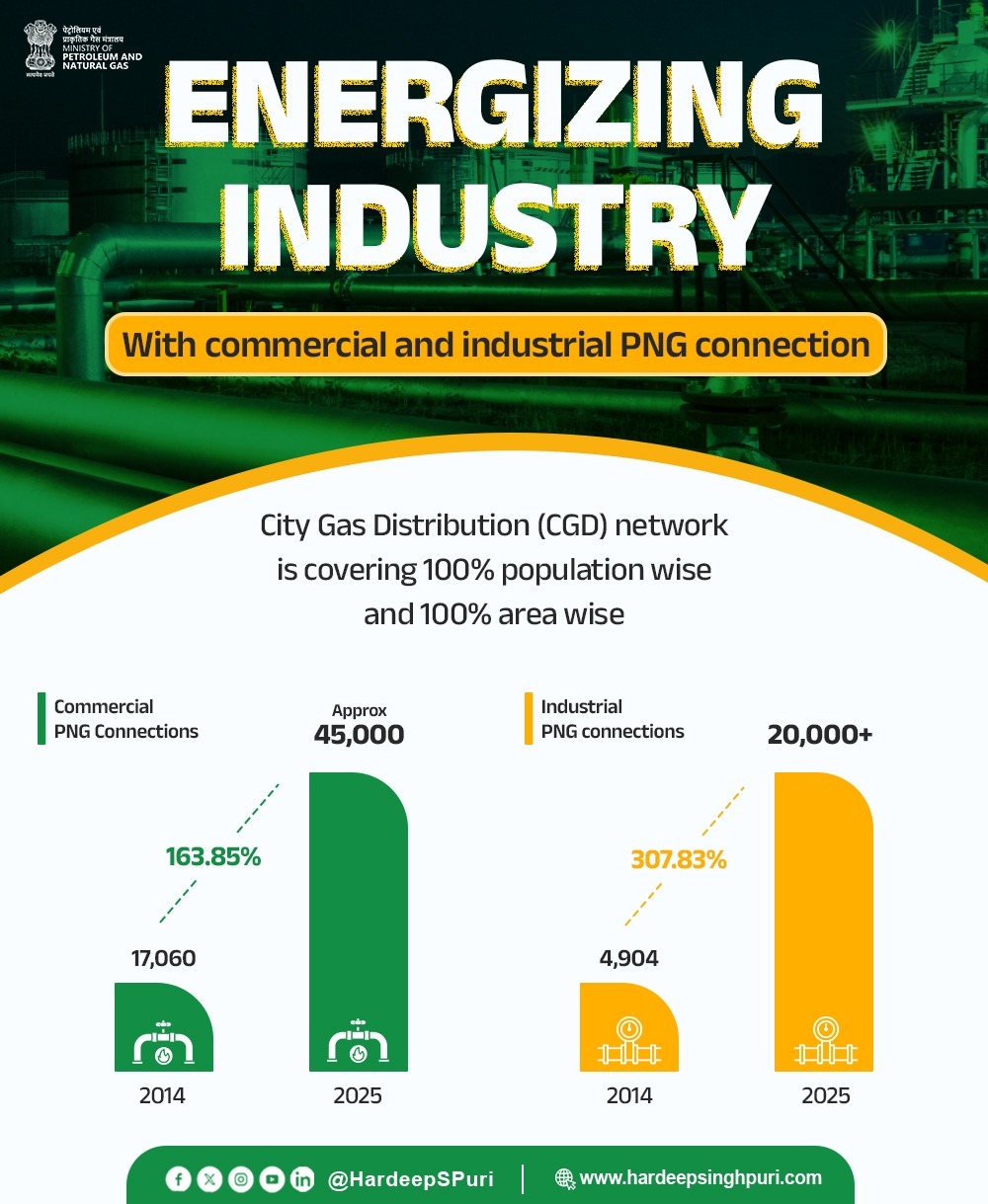Union Minister for Petroleum and Natural Gas, Hardeep Singh Puri, on Friday highlighted the transformative role of Piped Natural Gas (PNG) in India’s energy landscape. He noted that PNG is now supplying clean fuel to over 1.47 crore households, approximately 45,000 commercial establishments, and more than 20,000 industries across the country.
In a post on social media platform X, Puri stated, “Over the last decade, commercial PNG connections have increased by 164%, while industrial connections have surged by a remarkable 308%.”
He described PNG as an eco-friendly and cost-effective energy solution, adding, “It helps industries cut down fuel expenses, thereby lowering production costs and improving profitability.”
The Minister also underlined the logistical benefits of PNG, saying the 24×7 pipeline supply ensures uninterrupted operations without the challenges of storage or fuel shortages.
Calling it a safer energy option, Puri pointed out that PNG reduces the risk of gas leaks and is particularly advantageous for commercial centres and industrial units.
He further noted that the expanding adoption of PNG is significantly benefiting small and medium enterprises (SMEs), aiding in job creation and strengthening local economies. “The commercial adoption of PNG is playing a crucial role in supporting SMEs, which in turn contributes to employment generation and bolsters local economic development,” he said.
This growth comes on the back of a massive expansion of the City Gas Distribution (CGD) network over the past decade, driven by sustained government efforts. The CGD infrastructure now covers 100% of India’s population, marking a milestone in accessibility to clean energy.
According to official figures, commercial PNG connections have risen to 45,000, a 164% increase, while industrial connections have crossed the 20,000 mark, registering a 308% growth.
Earlier this month, on May 5, Puri also highlighted the impact of the Pradhan Mantri Ujjwala Yojana (PMUY). Sharing insights on X, he showcased how the scheme has brought transformative changes to underprivileged communities, expanding access to clean cooking fuel.
(With inputs from IANS)














